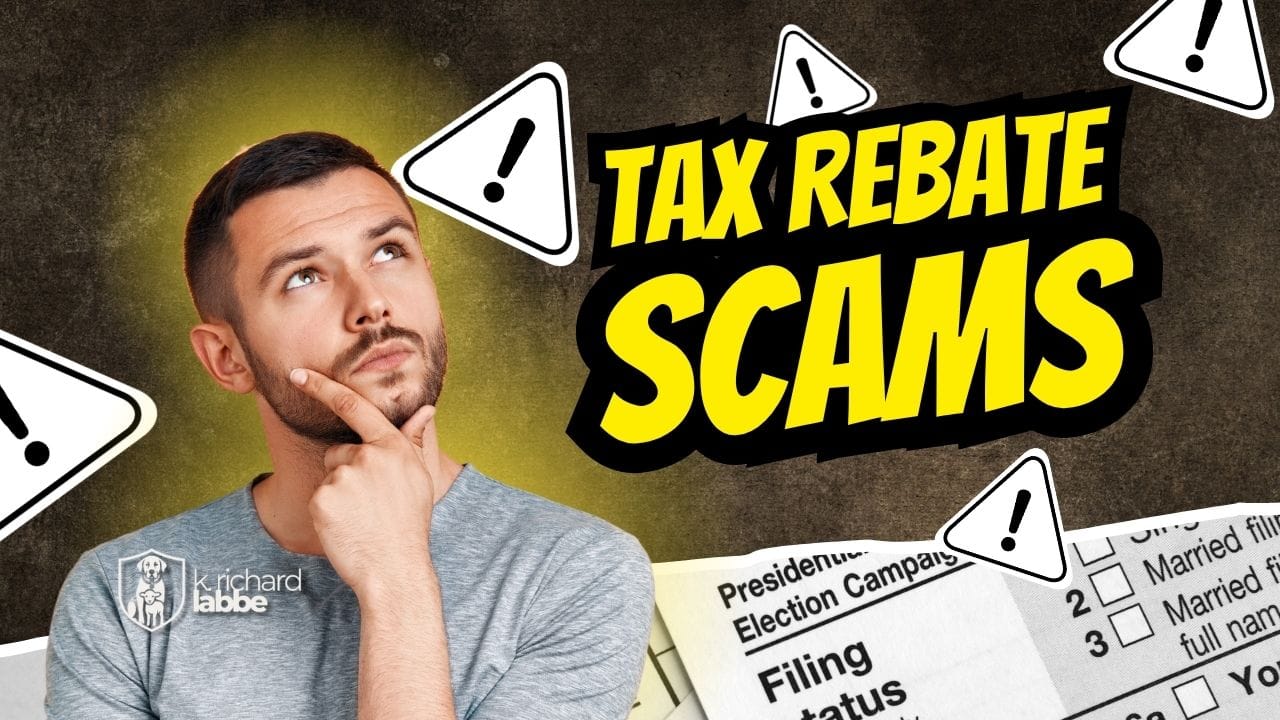Tax Rebate Scams: That “Unexpected Refund” Is a Red Flag, Not Free Money
In this post, we’ll break down how the tax rebate scam works, why it’s convincing, and what you can do to protect yourself and your loved ones.

It shows up just when you could use a little good news.
A text or email says the IRS owes you $1,276.13.
Or maybe it claims to be from your tax preparer or the state Department of Revenue.
It looks official. It sounds urgent. It even includes your name.
But something’s off.
If you didn’t request a refund, and they’re asking for your info—slow down. Scammers are using fake tax rebates to steal identities, drain bank accounts, and make life miserable for people who never saw it coming.
Let’s walk through how this scam works, why it’s so convincing, and how you can protect yourself—or someone you love—before damage is done.
The Setup: A Message That Feels Legit
You’re going about your day when a message pops up:
“The IRS has determined you’re owed a refund. Click here to claim it.”
Or:
“This is the final notice before your tax rebate expires. Verify your identity to receive funds.”
It might reference a real dollar amount.
It might even look like it came from a trusted source.
But here’s the bottom line: The IRS will not contact you by text, email, or phone to notify you of a refund.
They send letters. That’s it.
The scam works because it feels like good news—and doesn’t look like a scam at all.
How the Scam Unfolds
It usually starts with a message that looks official.
You’re told you’re eligible for a refund or rebate, and all you have to do is “verify your identity” to receive it.
You click a link.
You land on a website that mimics a real agency.
And you’re asked to enter sensitive information: Social Security number, banking details, maybe even login credentials.
Some scammers go further. They’ll send a small deposit—just enough to make it feel real—then follow up with a request for “processing fees” or “release charges” to unlock the rest.
By the time it’s over, they’ve gained access to your finances or collected enough information to commit identity fraud.
Why People Fall for It
This scam taps into two familiar feelings: hope and doubt.
Maybe you just filed your taxes and aren’t sure if everything was correct.
Maybe you’ve been tight on money, and the idea of an unexpected $300 or $1,200 brings a wave of relief.
Maybe it’s been a hard year, and this sounds like help.
Scammers know this. That’s why the messages sound reassuring, but urgent. They want you to act fast—without asking questions.
Older adults, caregivers, immigrants navigating unfamiliar systems, or anyone under financial strain is especially vulnerable. But truly, no one is immune.
How to Tell It’s a Scam
There are some fixed rules that can help you stay grounded:
- The IRS does not call, text, or email about refunds. If they didn’t mail you a letter, don’t trust the message.
- Pressure to act fast is a red flag. Real agencies don’t use threats like “final notice” or “respond within 24 hours.”
- Links and numbers in the message itself are almost always bogus. Go directly to irs.gov or call 1-800-829-1040 if you need to check something.
Don’t engage. Don’t click. Don’t reply.
If You’ve Already Responded
If you clicked or shared any personal info, take action now:
- Call your bank and let them know.
- Check your credit and monitor your accounts.
- Place a fraud alert or credit freeze if you’re concerned.
- Report the incident at IRS Phishing or to your state tax office.
You’re not overreacting. You’re protecting your future.
What You Can Do to Stay Ready
A few smart steps can go a long way:
- Set up your official IRS account at irs.gov/account. That’s the only place to check your real refund status.
- Keep tax records organized. Shred anything you no longer need.
- Talk to others. If you’re helping a parent, friend, or someone who doesn’t spend much time online, tell them what to look for. Sometimes one conversation can stop a scam before it starts.
Scams like this don’t just steal money—they erode trust. Let’s guard each other well.
Stay safe. Be ready. Online and off.
Every effort has been made to ensure the accuracy and reliability of the information presented in this material. However, Labbe Media, LLC does not assume liability for any errors, omissions, or discrepancies. The content is provided for informational and educational purposes only and should not be considered professional advice. Viewers are encouraged to verify any information before making decisions or taking actions based on it.
